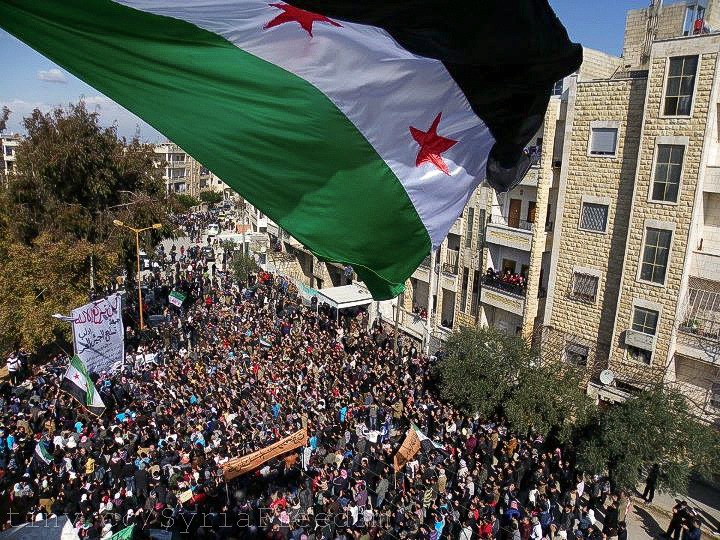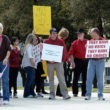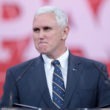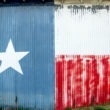photo: Freedom House
On Tuesday, Moscow confirmed that its air force bombed 206 terrorist targets in Syria. The same day, 10 French Rafale and Mirage fighters dropped 15 bombs on Raqqa, the Islamic State’s “capital” in Syria. The United States is also engaged in a bombing campaign targeting ISIS in Syria.
In the words of Churchill, enough bombing “to make the rubble bounce.”
Congressional Republicans (led by Senator John McCain), and the pack of Republican presidential candidates, call for more bombing. (Donald Trump: “Bomb the shit out of them.”)
Hundreds of thousands of words have been published, and cable news channels are providing round-the-clock reports on the attack on Paris and the aftermath.
And Wednesday, from one French media outlet, a voice urging restraint.
The editors of Le Monde diplomatique warn:
France’s military intervention was decided unilaterally, without public debate and with parliament playing no more than a cosmetic role, amidst the sort of media conformity usually seen in wartime. It raises some fundamental questions.
One fundamental question raised is the effectiveness (and the sanity) of a rapidly evolving, ad-hoc intervention that includes the United States, Turkey, Russia, Iran, Hezbollah, and Saudi Arabia, some of whom want to topple Syria’s Assad regime and others prop it up–– and what the fight for Syrian real estate might look like if ISIS were vanquished.
Five paragraphs into the article, the editors at Le Monde turn to what has to be the most “fundamental” question regarding the recent terrorist attacks: “ISIS is merely an avatar of a jihadist Salafism encouraged by the Wahhabism of Saudi Arabia, an obscurantist monarchy that the West has always indulged.”
Here the editors of Le Monde find themselves in agreement with a less dispassionate critic of Western policy in the Middle East.
Angry Arab
As’ad AbuKhalil is a Lebanese-born professor of political science in the Cal State system, and the publisher of The Angry Arab blog. In a fascinating November 14 “observations about the carnage in Paris” post, he, too, turns toward Riyadh.
[T]here is no way on earth to stem the menace of ISIS and Al-Qa`idah like organizations without going to the source, in Saudi Arabia which is the official headquarters of the Ibn Taymiyyah’s terrorist interpretation of Islam.
Ibn Taymiyyah is the one thinker/theologian who has inspired and guided the deeds and thoughts of terrorists striking in the name of Islam.
Esquire’s Charles Pierce comes to the same conclusion, adding a “follow the money” argument. Pierce dug up a 2009 WikiLeaks State Department memo signed by then-Secretary of State Hillary Clinton.
First published in The Guardian in 2010, under the headline “WikiLeaks cables portray Saudi Arabia as a cash machine for terrorists,” the memo includes the following on U.S. efforts to address Saudi funding of terrorism:
While the Kingdom of Saudi Arabia (KSA) takes seriously the threat of terrorism within Saudi Arabia, it has been an ongoing challenge to persuade Saudi officials to treat terrorist financing emanating from Saudi Arabia as a strategic priority…
The USG [U.S. Government] engages regularly with the Saudi Government on terrorist financing. The establishment in 2008 of a Treasury attache office presence in Riyadh contributes to robust interaction and information sharing on the issue. Despite this presence, however, more needs to be done since Saudi Arabia remains a critical financial support base for al-Qa’ida, the Taliban, LeT, and other terrorist groups, including Hamas, which probably raise millions of dollars annually from Saudi sources, often during Hajj and Ramadan. In contrast to its increasingly aggressive efforts to disrupt al-Qa’ida’s access to funding from Saudi sources, Riyadh has taken only limited action to disrupt fundraising for the UN 1267-listed Taliban and LeT-groups that are also aligned with al-Qa’ida and focused on undermining stability in Afghanistan and Pakistan. [Emphasis in original.]
It’s widely known that Saudi Wahhabism inspires radical Islamic terror. Following the money is a trickier business. ISIS wasn’t yet in operation when Hillary Clinton was raising questions about Saudi funding of terrorism in 2010. ISIS is now, at least in part, self-financing. But who are and who were the movement’s venture capitalists?
After the rubble stops bouncing in Syria, Western governments might consider deploying an army of forensic accountants capable of tracing the sources of terrorist funding. Prosecuting bankers and duplicitous officials in the Gulf States might be cheaper and as effective as bombing Syria and Iraq.







0 Comments